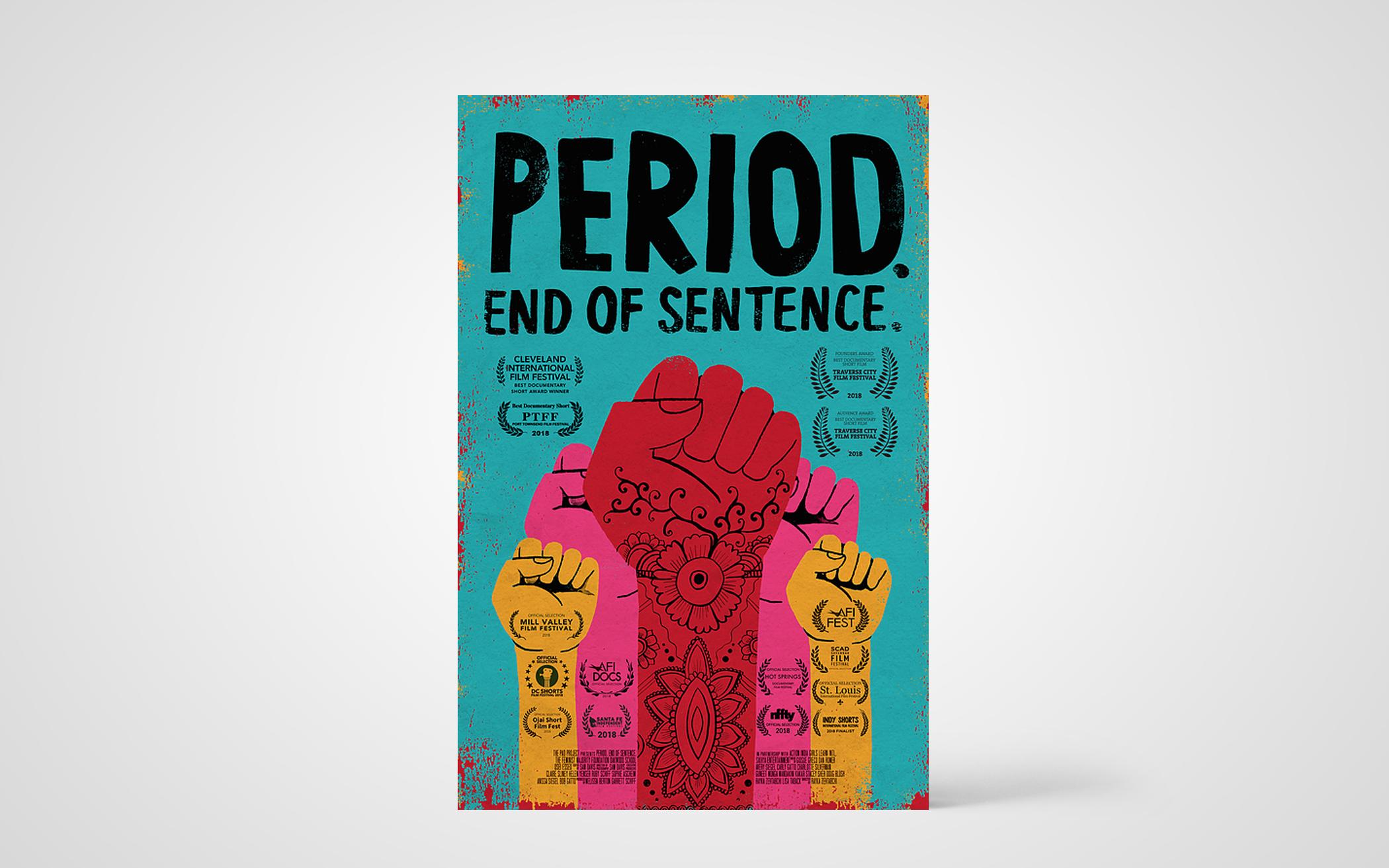I was intrigued with Period. End of Sentence, which won the Oscar for Best Documentary—Short Subject and made history for being by and about a woman’s issue. But I had no idea how it would expand my worldview and understanding of a crucial matter. I also insisted my 14-year-old daughter watch it so she could learn about how other girls her age must confront cultural conditioning and gender inequality. Here in North America, we take things like pads and tampons for granted. But as my daughter and I learned, in some places one’s period is a matter concealed in shame and secrecy. Access to sanitary items can be the difference between attending school or dropping out one week per month. In fact, “a period should end a sentence, not a woman’s education,” is the motto of The Pad Project, a nonprofit organization founded by the California high school students who brought their message to life in this documentary.
At just 24 minutes, the short film packs a punch, exploring the stigma surrounding menstruation in India and detailing how a group of women rise up to manufacture and sell sanitary pads. Together, they raise awareness about hygiene and educate girls and women, but also men, who, as depicted here, tend to be clueless about the monthly occurrence that affects half the planet. One man thinks it might be an “illness”; another wonders if a period starts “when the school bell rings.” Later, when a pad machine is installed in a country village outside of Delhi, a baffled man calls the items “diapers.”
Yet it is this seemingly unseemly aspect of life that prompts the women in the film to advocate for themselves, their health, and their potential as businesspeople. The women learn to manufacture and market their products, which they brand “Fly” because they want their customers to soar.
This film stirs empathy and courage as viewers witness the empowering actions of an oppressed people group to overthrow misinformation, taboos, and limitations. The title may be Period. End of Sentence, but because of these women and their bravery, the cultural shift toward gender equality is far from over. (Netflix)
About the Author
Lorilee Craker, a native of Winnipeg, Man., lives in Grand Rapids, Mich. The author of 16 books, she is the Mixed Media editor of The Banner. Her latest book is called Eat Like a Heroine: Nourish and Flourish With Bookish Stars From Anne of Green Gables to Zora Neale Hurston.

